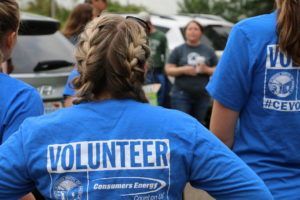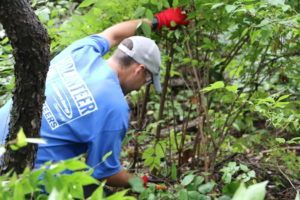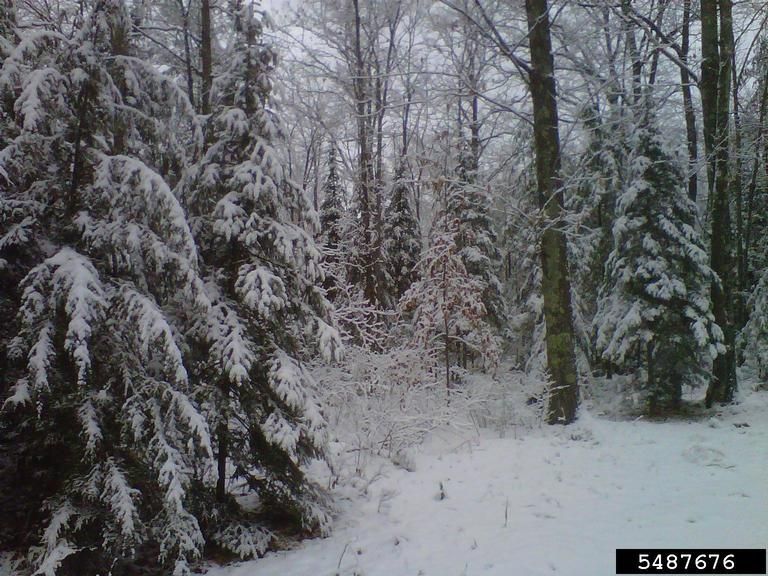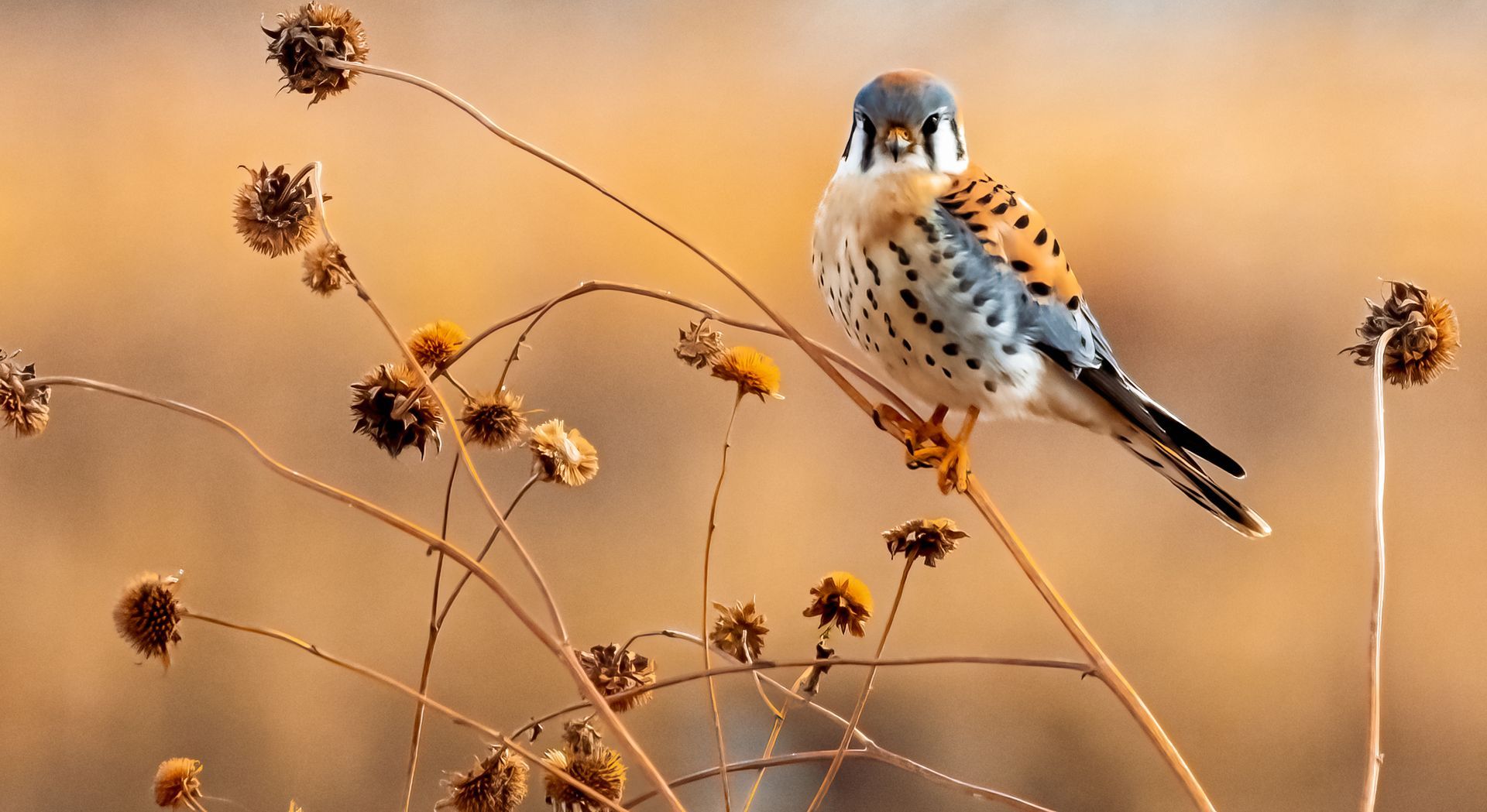Consumers Energy Partners with OTG at Rose Lake SGA
Volunteers from Washington, D.C. and Michigan came together Tuesday, August 27 to remove and treat invasive honeysuckle in the Rose Lake State Game Area (SGA) in East Lansing.
Michigan United Conservation Clubs’ (MUCC) On the Ground (OTG) program hosted the event with Consumers Energy to aid the company in reaching its planet goals of restoring, protecting and enhancing 5,000 acres of public land.
honeysuckle in the Rose Lake State Game Area (SGA) in East Lansing.
Michigan United Conservation Clubs’ (MUCC) On the Ground (OTG) program hosted the event with Consumers Energy to aid the company in reaching its planet goals of restoring, protecting and enhancing 5,000 acres of public land.
Consumers Energy rallied 18 volunteers from both Washington, D.C. and Michigan to come out and have a positive impact on local wildlife habitat. The invasive honeysuckle was removed using loppers, hand saws and chainsaws within a 24-acre forest stand. Volunteers wasted no time before delving into the understory to help get the forest back on the right ecological track. To further inhibit the regeneration and growth of the invasive species, licensed pesticide applicator Autumn Christenson chemically-treated each invasive honeysuckle stump.
 The honeysuckle was still very dense throughout the understory of the forest we were working to improve, but the staff at Consumers Energy did an excellent job at remaining motivated throughout the course of the project. Although conditions were hot and humid, it was a great day in the field and a great example of how powerful partnerships can be in conservation. A huge thank you to all the staff at Consumers Energy who came out to Rose Lake for this event and volunteered for wildlife!
The honeysuckle was still very dense throughout the understory of the forest we were working to improve, but the staff at Consumers Energy did an excellent job at remaining motivated throughout the course of the project. Although conditions were hot and humid, it was a great day in the field and a great example of how powerful partnerships can be in conservation. A huge thank you to all the staff at Consumers Energy who came out to Rose Lake for this event and volunteered for wildlife!
Our final OTG event of the season will involve removing woody brush from along dike edges to improve hunter and recreationist access within the Gratiot-Saginaw State Game Area on September 6. We will then stack the brush off to the side of the dikes to enhance habitat for native game and non-game species. Come out and help us wrap up another successful OTG season!
The post Consumers Energy Partners with OTG at Rose Lake SGA appeared first on Michigan United Conservation Clubs.



